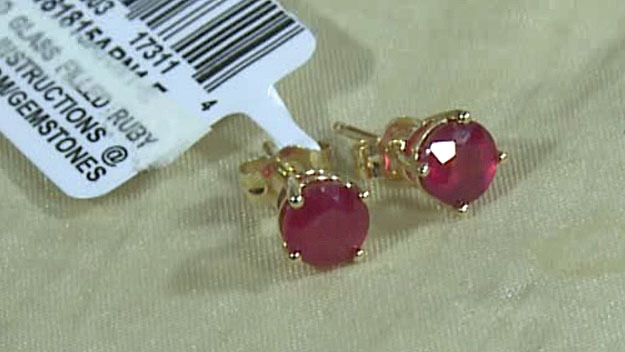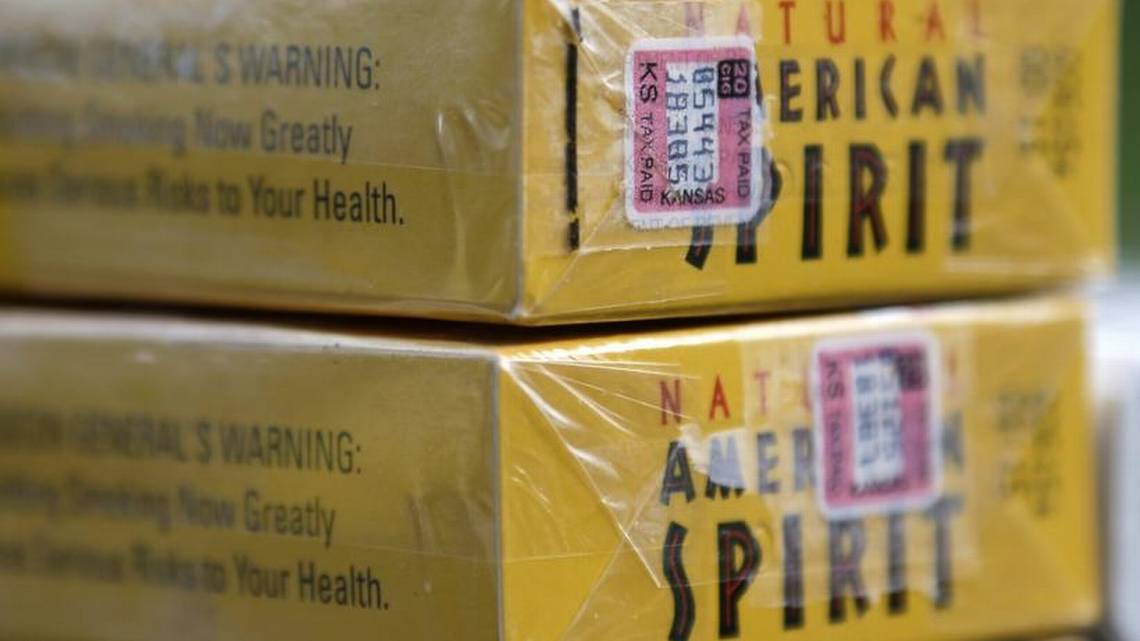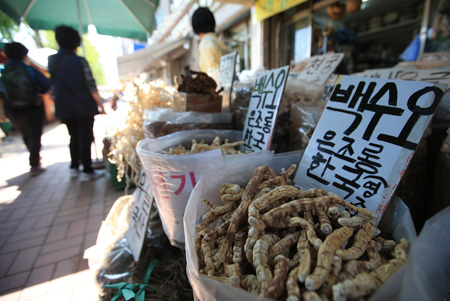
Guard helps 4 men smuggle cigarettes
Dubai Public Prosecution has referred five Asian men to Dubai Criminal Court on charges of forging Dubai Customs documents and smuggling out cigarette shipments, reported ‘Al Bayan’.
Then men allegedly forged exit permits to smuggle shipments of cigarettes out of Jebel Ali Port in order to avoid paying customs duty of about half-a-million dirhams, the reported added.
One of the suspects is a guard at the port who helped the others take the shipment out without authorised documents in return for Dh4,000.
http://www.emirates247.com/crime/local/guard-helps-4-men-smuggle-cigarettes-2015-05-05-1.589678
Lear More
Buyer Beware: Real Rubies Or Fake Gems?
Second only to diamonds in the hierarchy of precious gems, rubies are the most valued of all the colored stones.
Mary Kay Elloian was thrilled to find a pair deeply discounted at just $100.
“I was buying ruby, a pair of ruby earrings. That’s what I requested and that’s what I was buying,” Mary Kay said.
At least that’s what she says the salesperson at Macy’s in the Northeast told her she was buying, but when she got the earrings home, she noticed a partially-covered sticker with fine print.
http://miami.cbslocal.com/2015/05/05/buyer-beware-real-rubies-or-fake-gems/
Lear MoreFive accused of smugging cigarettes worth Dh500,000
Five men have been accused of involvement in a case of smuggling 250,000 packs of cigarettes worth Dh500,000 into the local market to evade customs fees. A Sri Lankan businessman, M.M., and a Pakistani driver, A.K., were said to have offered Dh4,000 in bribe to an Indian security guard, C.E., to allow them to drive truck carrying the consignment from Jebel Ali Port into the local market.
Prosecutors charged M.M. and A.K. with bribing a public servant [C.E.] and evading customs fees by smuggling the 500 cartons of cigarettes into the local market [without paying Dh500,000, the required custom fees] in an illegal manner in 2010.
http://gulfnews.com/news/uae/courts/five-accused-of-smugging-cigarettes-worth-dh500-000-1.1504583
Lear More
$2-per-pack tobacco tax could land on California ballot
A coalition of health and labor groups on Monday submitted a pair of initiatives for the 2016 ballot to raise the state’s tobacco tax by $2 a pack, perhaps an acknowledgment that a similar effort moving through the Legislature will ultimately be scuttled. Save Lives California, including the American Heart Association, American Lung Association, American Cancer Society, California Medical Association and SEIU California, filed two measures with the Attorney General’s Office for titles and summaries. Backers will likely decide later which one to take to the streets for signatures and a place on the ballot. One measure allows state tax officials to impose an equivalent tax on electronic cigarettes.
http://www.sacbee.com/news/politics-government/capitol-alert/article20223633.html
Lear MoreOPA Lives On For The International Anti-Counterfeiting Coalition
Last week the International Anti-Counterfeiting Coalition (IACC) held their spring conference in San Diego, to share intelligence about the latest strategies for combatting “counterfeiting” (by which they mean trademark infringement) and “piracy” (by which they mean copyright infringement). EFF’s Jeremy Malcolm attended as an invited panelist, giving us the opportunity to assert our views that anti-piracy campaigns should not infringe users’ rights or damage the fabric of the global Internet. But perhaps more importantly, it also also afforded us a window into the mindset of the content and brand owners, law enforcement officials and lawyers behind these campaigns.
Lear MoreBlack market tobacco now 14.5 per cent of all consumption, Illicit Tobacco in Australia report shows
THE BILLION dollar illicit tobacco black market has hit a record high as Australian smokers baulk at the price of legal cigarettes. Criminals are exploiting the high price of legal smokes to make massive profits by smuggling in cheap tobacco from overseas. Last year 14.5 per cent of all tobacco consumed was illegal, according to a new report.
Lear More
Fake medicine hits retail investors hard
Individual investors took a severe beating from the fake herbal medicine produced by Naturalendo Tech, with their combined investment losses estimated at more than 600 billion won ($559 million).
“About 9,400 retail investors held a combined 54 percent stake in Naturalendo Tech as of the end of last year. They likely suffered hefty losses as the company’s stock prices fell sharply Thursday after the authorities said the herbal medicine contained uncertified ingredients,” an official at the tech-heavy KOSDAQ market said.
http://www.koreatimes.co.kr/www/news/biz/2015/05/488_178130.html
Lear MoreFeds seize large Fresno County tribal cache of cigarettes
Federal agents seized more than $600,000 in cigarettes destined for the Big Sandy Rancheria, but tribal leaders say the cigarettes were improperly confiscated and have filed legal action to have them returned.
The eastern Fresno County tribe, perhaps best known for its Mono Wind Casino in Auberry, is a major cigarette distributor to other California tribes including Chukchansi, which has its own federal issues — its casino has been under court-ordered closure since October
http://www.fresnobee.com/2015/05/02/4506652/feds-seize-large-fresno-county.html#storylink=cpy
Lear MoreEssex County Corrections Officer Accepted Bribes to Smuggle Cigarettes and Cell Phones
An Essex County corrections officer admitted that he accepted bribes in exchange for smuggling contraband – including cell phones and tobacco – into the Essex County Jail. John Grosso, 41, of Belleville, New Jersey, pleaded guilty on Thursday in federal court to conspiring to commit extortion under color of official right. According to court documents and statements, Grosso, a corrections officer at the Essex County Jail, admitted that in December 2013, he agreed to accept cash bribes in return for his assistance smuggling cell phones and cigarettes to an inmate.
Lear MoreMan gets year in prison for smuggling cigarettes from Missouri
A Chicago man has been sentenced to a year in prison after pleading guilty to smuggling black market cigarettes into Illinois from Missouri. Johnell E. Henderson, 36, was arrested May 15, 2013, after a traffic stop by Illinois State Police, according to a statement from the Illinois Department of Revenue. Henderson was caught with about 1,470 packages of Newport 100 cigarettes, bought in Missouri, the department said. IDOR agents determined he was not authorized to possess or transport the cigarettes.
Lear More


